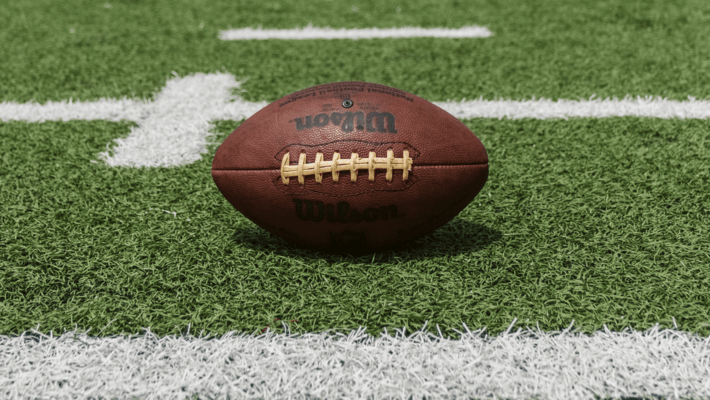
Can Cannabis Help Athletes Perform Better?
Published on 1/29/22
When you think about performance-enhancing drugs taken by athletes, one of the last things you might think about is cannabis. Yet there are many examples of high profile athletes who used cannabis both recreationally and medically, claiming that it helps physical or mental performance. There's good reason to think that cannabis might be able to help many types of athletes in many kinds of ways: there's its effect on reducing anxiety or increasing quality and quantity of sleep, as well as its ability to reduce pain. As legalization in many states makes cannabis more widely available, the advantages of THC for athletes can be better understood.
THC and You
 Unsplash
UnsplashTetrahydrocannabinol, known as THC, is the active ingredient in marijuana that interacts with your brain chemistry. THC gives you the head high, making stress vanish, attention deepen or mood lighten. THC receptors in our brain create neural pathways once we consume marijuana, which is one reason why marijuana is often associated with creativity or new ways of thinking. Legality has led to a booming market in THC products, from the simple to the complex, and many new insights into how cannabis affects the body and mind.
Much of the research on cannabis focuses on the mental side, such as productivity studies. The physical side, by contrast, has received less attention. This means that the impact of THC and exercise is not as well known, with not as many conclusions that can be made. However, evidence suggests that cannabis oil presents many advantages to the body, especially in healing. THC oil for injuries, for example, can help reduce inflammation, increase blood flow, and mitigate chronic pain. This is why medicinal cannabis oil products are often targeted at exercise complications like sore joints, pulled muscles, or stiffness. As a result, THC oil for athletes can solve various health concerns that arise in both contact- and non-contact sports.
Pros and Pot
 Unsplash
UnsplashDue to the high profile of most athletes and the federal laws against cannabis consumption, no current professional sports league allows its players to consume any cannabis products. Most regularly drug test their athletes for a variety of substances, including cannabis, and impose stiff fines or even bans on those who test positive. This has resulted in high-profile players getting caught for cannabis; perhaps most infamously was the NFL marijuana debacle with star player Ricky Williams, who loved good bud more than he loved making millions of dollars on the field and left the game behind to be able to spark up.
NFL weed use is well-known; in his autobiography "Slow Getting Up," former NFL tight end Nate Jackson referenced smoking weed to dull the pain from major injuries. Jackson referenced how NFL teams are eager to provide painkillers, but many players prefer cannabis because it is not addictive or not as detrimental as opiates. NFL drug testing infamously takes place on April 20th of each year, a reflection of how the sport's management and ownership take a hardline anti-marijuana stance for players. However, players may only be tested once per year, making it relatively easy to come up with a clean test, even though the testing standards are high and make it quite difficult to cheat. Even so, players constantly test positive for cannabis and are punished.
 Unsplash
UnsplashOther leagues try to prevent such cases from making headlines. The NHL drug testing policy is fairly light: players are randomly tested but receive advance notice. They are also not tested before or after games, nor in the offseason, meaning players can light up once the season is over. Reports of NHL players who live in weed-legal states, such as members of the Colorado Avalanche, suggest that they enjoy edibles and oils. However, smoking is rarer in a sport like hockey that puts so much value on cardio.
The MLB drug testing policies were at one point blatantly lenient, allowing players to get away with just about anything. The eruption of the steroid scandal era of the 1990s put paid to an era where testing might only occur when there was a specific concern about a player's performance or behavior. Instead, today MLB players are tested for synthetic THC, along with drugs like opiates or cocaine.
Finally, NBA drug testing is relatively relaxed compared to many other leagues. Commissioner Adam Silver is famous for being forward-thinking and pragmatic and has said the league will cease random marijuana tests. While NBA players have to submit four clean drug tests per year, they are no longer subject to random THC tests and can smoke or eat or dab as they please.
Promoting the Market
 Unsplash
UnsplashLike many other industries, pro sports may soon find a reason to cozy up to cannabis. Sponsorship is a big deal for many teams, and few companies are making more money right now than good dispensaries. The NFL has pledged $1 million for research into cannabis and pain relief. Some cannabis organizations have stakes in larger companies with commercial agreements, such as BioSteel, whose subsidiary companies include cannabis manufacturers and retailers. While no pro athlete has appeared in a cannabis commercial yet, many have spoken out on the issue and claimed that the prohibition laws should be changed or repealed. In 2016, NFL player Eugene Monroe publicly challenged the league's cannabis policy, insinuating that it was unjust and would lead to other drug use to manage pain. The day that a cannabis company can afford to purchase an ad behind home plate or center field might lead to significant changes in sports drug policy.
Do you play any sports in conjunction with a cannabis hobby? How have you found the impact of THC or CBD on your performance? Let us know in the comments below!
